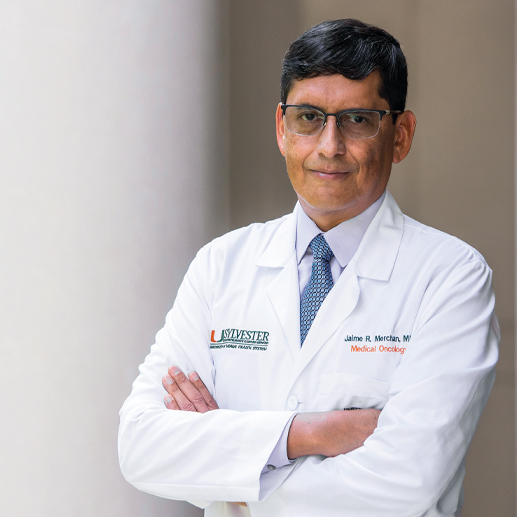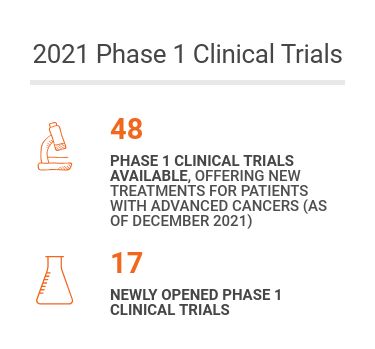Phase 1 Program Remains Robust During Pandemic

Sylvester continued to offer phase 1 cancer trials during the pandemic in 2021, when many phase 1 programs across the United States shut down.
“We have a robust portfolio of phase 1 clinical trials that are testing new and promising treatments that are not available elsewhere in the region, and in some cases around the country,” said oncologist Jaime Rafael Merchan, M.D., director of Sylvester’s Phase 1 Program.
Sylvester’s portfolio, for example, includes multiple oncolytic virus trials, making Sylvester one of the few centers in the country with significant experience and expertise in translational oncolytic virotherapy research.

Sylvester staff enrolled patients for several early-phase trials in ’21. The following three are among the most impactful for their novelty, promise and potential use in many cancer types, according to Dr. Merchan.
Phase 1 Clinical Trials Highlights
A phase 1/2 study of RTX-240 as a monotherapy and in combination with pembrolizumab, introduces an innovative approach for activating antitumor immune responses. The study will use engineered red blood cells designed to carry immune-modulatory proteins on the cell surface to reactivate inactive immune cells at tumor sites and where immune cells accumulate.
Lead: Jaime Rafael Merchan, M.D.

This study is using mRNA vaccine technology to stimulate the immune response against prostate cancer antigens.
Lead: Janaki Sharma, M.D.

This novel, promising virus been engineered to carry therapeutic weapons which, after administration into the tumors, not only attack tumor cells directly but also use the patient’s own immune system to continue killing the tumor.
Lead: Agustin Pimentel, M.D.